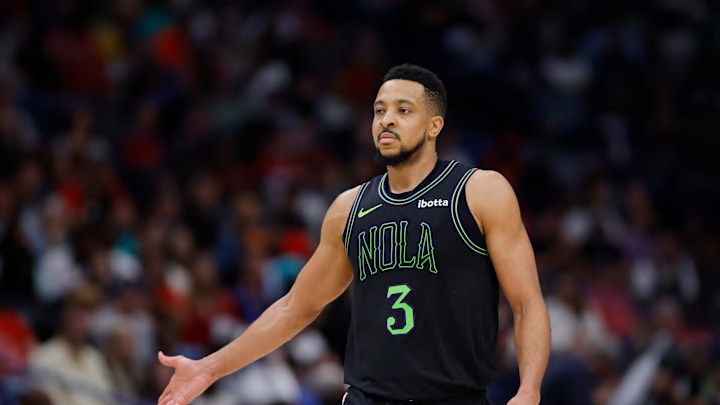Throughout NBA history, teams have always risked "striking out" to find the " next best thing, or the new trend to championship-winning basketball. Whether it's playing style, roster construction, coaching staff, front office moves, or simply finding the missing piece, teams ultimately strive to hoist the Larry O'Brien Trophy as league champions. However, one of the most overlooked parts of every championship-winning team is the pieces properly fitting the puzzle. In other words, fit matters.
In the early stages of the league, winning with either one or two elite-level players and a great supporting cast was a possibility. Examples consist of the Kareem Abdul-Jabbar and Oscar Robertson-led Bucks in the 1970s. The Philadelphia 76ers did the same with Julius Erving and Moses Malone in the 1980s, as did the 'Bad Boy' Pistons with Isiah Thomas and Joe Dumars. The Hakeem Olajuwon-led Rockets won this way, and so did the Chicago Bulls with Michael Jordan.
It doesn't stop there. The Kobe-Shaq Lakers won with two elite players, but after those Lakers' teams, the tide began to change. The Pistons, Spurs, and Celtics of the 2000s sported a roster with three or more elite players, and the league's formula for winning began to change. Yes, the Heat snuck in a title with an aging Shaquille O'Neal and young Dwyane Wade, but a majority of the league's championship winners in the 2000s came from winning with three or more All-Stars. That took another level, though.
Since the 'Heatles Big 3' run from 2010-2014. Often considered the beginning of the 'superteam' era, several teams have tried to mimic Miami's success. The Kevin Durant-led Golden State Warriors are a prime example of a team that was successful, while the Brooklyn Nets 'Big 3' of Kevin Durant, James Harden, and Kyrie Irving is regarded as one of the biggest failures in league history. Another failure (so far) has been the Phoenix Suns 'Big 3' of Kevin Durant, Devin Booker, and Bradley Beal.
Teams of late have found success winning with 'dynamic duos' (Denver), but Boston just won an NBA title by building the best starting five in the league, with four former All-Stars and all five starters being arguably the best at their specific roles. Finding players willing to set aside their ego, usage, and status on the team for the sake of team success is arguably the biggest factor in winning.
Where does this leave New Orleans in the 'roster building conundrum'?
New Orleans' roster currently has some of the league's best depth for true rotation. With seven starting caliber players, and an energizer bunny for a backup point guard (Jose Alvarado), the Pelicans have all the pieces they need to win a title. However, someone has to emerge as the team's best player, doing so in a superstar-level jump. That player is Zion Williamson. If he can do that, the goal has to be fitting the rest of the roster together.
New Orleans' roster lacks balance, with much of the talent and depth coming from the wing and guard positions. Without a deep frontcourt, the Pelicans will have to play a more friendly style of basketball reminiscent of today's league. However, their roster lost the distinction of 'fit' when they originally traded for CJ McCollum, trying to make him more of a facilitator as a point guard. Having always played off-ball, McCollum's transition to point guard has left the Pelicans without a true point guard.
Now that the organization has traded for Dejounte Murray, a more natural point guard, McCollum can slot back into his natural position as a shooting guard. Yes, the Pelicans will be smaller on paper. But they'll be faster, better offensively, and create more versatility and shooting around their best player. With the Murray trade, New Orleans has one of the biggest components to winning a championship solved: The fit of the roster.
New Orleans may not fully be a championship contender. However, they have established the biggest factor they'll need to win a title. That factor is fit, arguably the most important trait to have for a winning team (besides chemistry). Just like a puzzle, the pieces have to fit. If they don't fit, you can never put the puzzle together and complete it. It feels like New Orleans has learned their lesson about roster construction, play style, and fit, but only time (and this season) will tell.
